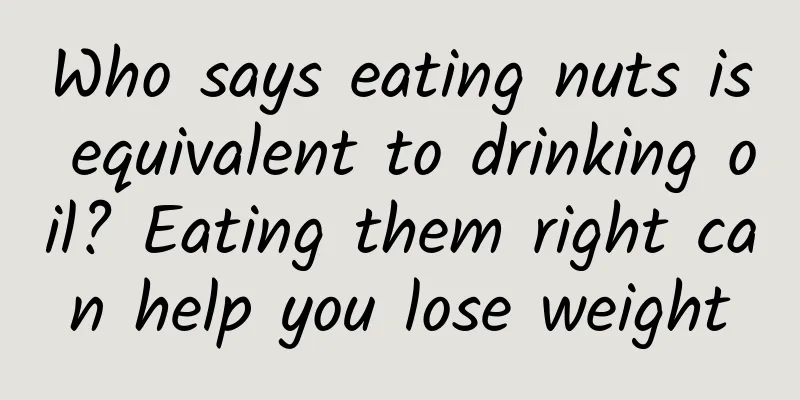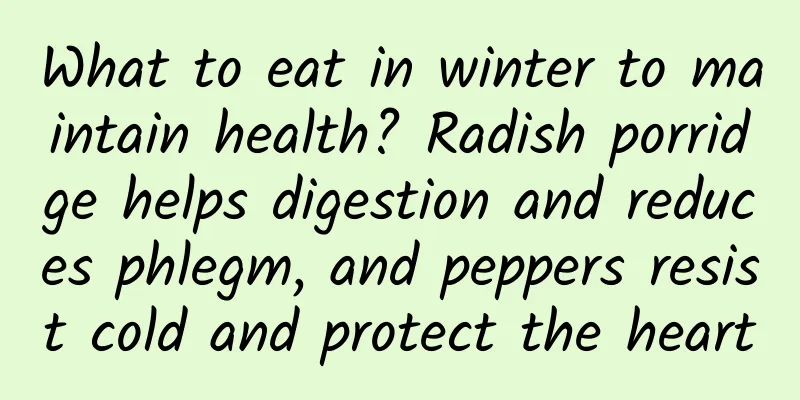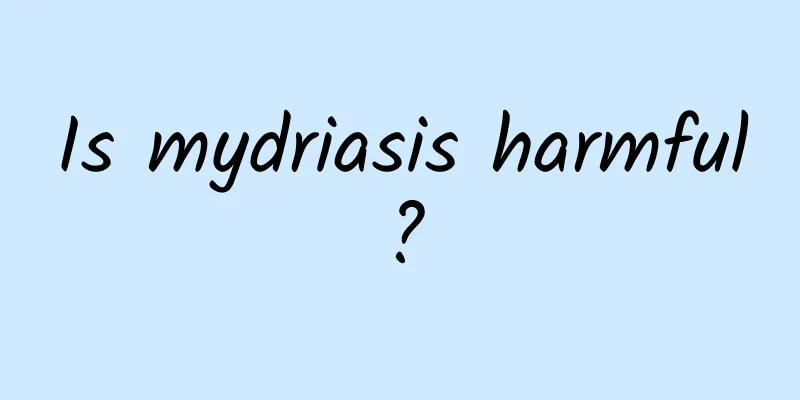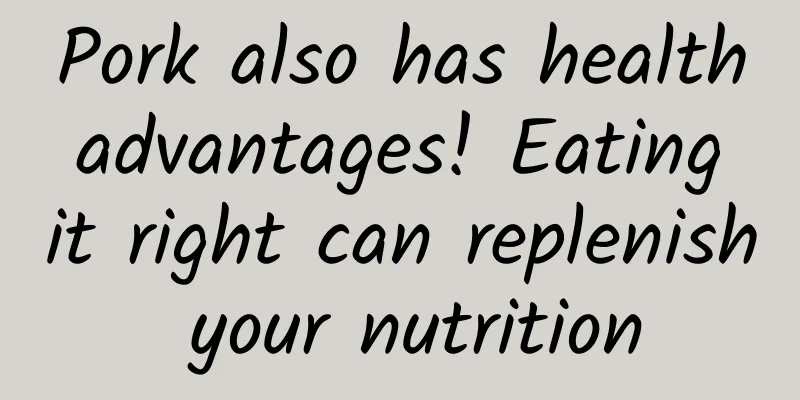Who says eating nuts is equivalent to drinking oil? Eating them right can help you lose weight

|
Melon seeds, peanuts, walnuts, nuts... These are indispensable snacks on every family’s table during the Spring Festival gatherings. While chatting or watching TV, you will unknowingly eat a lot of them. It is said that eating nuts will make you fat, as they are high in calories, which is equivalent to drinking oil. If you find yourself gaining weight after the Chinese New Year, nuts will surely be part of the weight you gained. However, as the absolute mainstay of holiday snacks, the temptation of nuts is irresistible. So today we will talk about: How to eat nuts without gaining weight, and how to choose nuts? 01 Will eating nuts make you fat? Control the amount and you can lose weight! Nuts are delicious, but many people don't dare to eat them because they are afraid of getting fat. In fact, eating nuts properly will not only not make you fat, but can also help you lose weight. The American Journal of Clinical Nutrition once published a study on the link between long-term nut intake and obesity. The experiment found that adding nuts to a calorie-restricted diet was not associated with weight gain, and it resulted in greater weight loss and higher insulin sensitivity. The literature also shows that eating large amounts of nuts (especially walnuts) is associated with a reduced risk of diabetes. Therefore, you can insist on eating nuts regularly (about once a day) as part of a healthy diet to prevent obesity and type 2 diabetes. [1] In addition, many other domestic research results have also shown that appropriate intake of nuts can reduce the risk of obesity. So, how much is considered appropriate? my country’s Dietary Guidelines for Chinese Residents recommends a daily intake of 50-70g of nuts per week, averaging about 10g per day[2]. How much is this? Original image: Boiled peanuts (10g is 10-12 pieces) 10g of nuts is equivalent to: 10-12 boiled peanuts 7-8 cashews 7-8 almonds 2 pecans A handful of half shelled melon seeds 1 walnut in shell Original picture: 10g paper-skin walnuts 02 Is eating nuts equivalent to drinking oil? Not that exaggerated Common nuts in our lives include: peanuts, melon seeds, walnuts, pine nuts, cashews, macadamia nuts, pecans, almonds, hazelnuts, etc. The common feature of nuts is that they are high in fat. The fat content is generally 40% to 60%, and some nuts have a fat content of over 70%. For example, the fat content of pecans is 71.97%, while the fat content of peanuts is relatively low, at 25.4%. [3] You may have heard this saying: eating nuts is like drinking oil. Perhaps it is because of the high fat content that this saying is true. But in fact: eating nuts ≠ drinking oil! There are differences in calories and nutrients between the two. Take the melon seeds we often eat as an example: Eating 10g of melon seeds can provide 1.5 times, 71.8 times, 57.5 times, 2.9 times, 547 times, and 151 times more vitamin E, magnesium, calcium, iron, potassium, and phosphorus than drinking 10g of sunflower oil, respectively, while the calories are only 3/5 of that of 10g of sunflower oil. [3] So, eating nuts and drinking oil are different! 03 How to choose healthy nuts: Since nuts are so good, how should we choose them when buying? When buying nuts in bulk, it is recommended to choose closed nuts instead of open ones. Open nuts are not only easy to harbor dirt, but also easy to deteriorate. The unsaturated fatty acids in nuts are easily oxidized and rancid. Open nuts are also more susceptible to moisture and mold. The main component of mold is aflatoxin, which has the risk of inducing liver cancer. Human epidemiological studies have shown that there is a clear correlation between aflatoxin and liver cancer. [4] If you buy packaged nuts, it is recommended to choose plain nuts and avoid nuts with flavors such as spiced, salt-baked, or charcoal-roasted. Studies have shown that long-term high-salt diets increase the risk of chronic diseases and stomach cancer.[5] Packaged nuts of various flavors may have sugar, oil, salt and other substances added during the processing, which increases the flavor of the nuts while also increasing the calories and salt content of the nuts. For example, the two types of melon seeds shown below, one is spiced melon seeds, and the other is plain melon seeds. The sodium content of the two differs by 153 times. If you eat 100g of spiced melon seeds, the sodium intake is as high as 1230mg, which is equivalent to 3g of salt, and has reached 50% of the salt intake recommended by my country's dietary guidelines (6g/d). Image source: e-commerce platform (spiced melon seeds) Image source: e-commerce platform (original melon seeds) To summarize: Nuts are healthy snacks rich in unsaturated fatty acids. Studies have shown that people who consume 24-28 grams of nuts per day can reduce their risk of cardiovascular disease by 22%-30% compared to those who rarely consume nuts. [2] Eating nuts is not the same as drinking oil. It is recommended to eat 10g per day. It will not only not make you fat but also help control your weight. When choosing nuts, it is best to choose original nuts within the shelf life. When buying bulk nuts, it is more hygienic and safer to choose unopened ones. References: [1]. Chandra L Jackson, Frank B Hu, “Long-term association of nut consumption with body weight and obesity”, American Journal of Clinical Nutrition, Volume 100, Issue Supplement 1, July 2014, Pages 408S–411S, https://doi.org/10.3945/ajcn.113.071332 [2]. Chinese Nutrition Society. Dietary Guidelines for Chinese Residents[M]. People's Medical Publishing House, 2016.72/75/82 [3]. Yang Yuexin. Chinese Food Composition Table 6th Edition Volume 1[M]. Peking University Medical Press, 2018 [4]. Zhai Hongyan, Huang Tianren. Current status of research on the relationship between aflatoxin and liver cancer[J]. Journal of Medical Research, 2008(01):99-101. [5]. Jin Anqin, Yin Tingting, Huang Xiaojun. Study on the correlation between trace elements in the blood of residents in high-incidence areas of gastric cancer, high-salt diet and gastric cancer [C]// Proceedings of the National Conference on Tumor Epidemiology and Tumor Etiology. 0. This article was first published on the "Science Rumor Refutation Platform" |
<<: What is the importance of cycling clothes? How to wash cycling clothes
Recommend
To be honest! You really don’t need to take a shower every day in winter
Taking a bath in winter must be something that ma...
I'm so angry! Where did it come from?
Almost all of us have experienced "belly blo...
4 signs of sudden death, catching them early may save lives
Audit expert: Wang Xin Deputy Chief Physician, De...
11 dietary therapies to relieve dysmenorrhea in women
Traditional Chinese medicine calls this disease &...
Treatment for gray hair after childbirth
Many mothers are very distressed about the appear...
How to make mulberries sweet when they are too sour (not ripe enough to be put with ripe bananas)
...
Causes of bleeding in early pregnancy
There are many things to pay attention to during ...
[Fat Bear Science] Do you like hot food? Do you like hot tea? Do you love spicy food? Beware that this cancer is caused by eating
During festivals, people naturally eat and drink,...
Vaginal ultrasound revealed infection
Vaginal ultrasound is a common examination method...
People who look younger after giving birth
Every woman experiences different changes during ...
Can pelvic inflammatory disease be detected by color Doppler ultrasound?
In our lives, many women feel unbearable abdomina...
Is it good to eat fermented rice wine eggs during menstruation?
Different people have different living habits. Ma...
How many days after scar pregnancy surgery will I be discharged from the hospital?
Scar pregnancy refers to the situation in which t...
How to maintain the uterus after curettage
We all know that the female body structure is par...
Glandular and fatty feel
Many girls work hard on dieting to lose weight, b...









